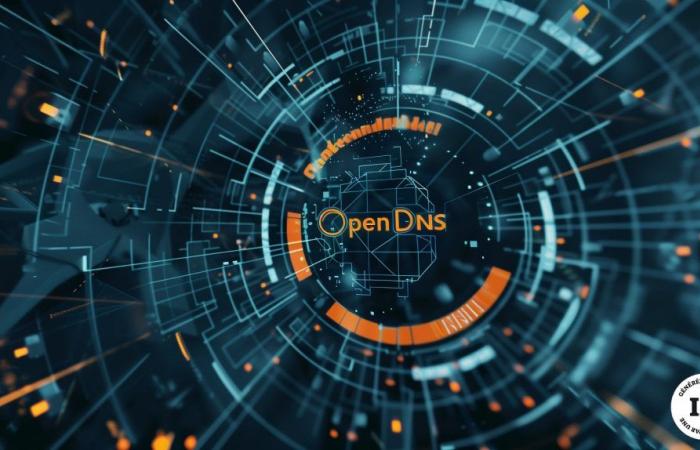OpenDNS no longer responds favorably to requests from France. The DNS resolution service, which belongs to the American company Cisco, has decided to withdraw from the French market due to a court decision.
This is information that you may have come across while reading specialized publications in recent days: the American OpenDNS service no longer processes requests from Internet users when they are in France, since the end of June 2024. The cause: a court decision in France which led OpenDNS to withdraw from the country.
« Due to a court decision rendered in France under Article L.333-10 of the French Sports Code […] OpenDNS service is currently not available for users in France and certain French territories […]. We apologize for the inconvenience. », Says a press release published on June 27, 2024.
The article in question is quite recent in French law. It was created with a 2021 law on the regulation and protection of access to cultural works in the digital age, then expanded in 2022 with a law on sport. The text contains anti-piracy provisions which have since been regularly used. For example, hacking Internet users were able to change the DNS on their computer to escape DNS blocking from their ISP, following a court decision.
OpenDNS, rather than working to carry out targeted filtering on disputed addresses, has therefore opted for the hard way: to give up providing its services in France. Since June 28, Internet users who used it must therefore opt for the DNS of their Internet service provider or opt for another provider.
What is a DNS resolver?
OpenDNS is a public DNS resolver. In short, it is used to bring Internet users to the right place when they want to go to a website. To summarize schematically, sites are hosted by servers that can be visited if you know the “address” – in this case, it is the IP address. All machines on the Internet have one.
However, it is really not convenient to memorize the IP addresses of the sites we visit. It is easier to navigate with web addresses, that is to say domain names (like numerama.com). All that was left was to match the IP addresses with the domain names. This is done by DNS (Domain Name System) resolution.
By default, this work is done by Internet service providers. However, it is possible to use third-party solutions, for various reasons: a one-off failure of the operator’s DNS resolution, or because the ISP manipulates this resolution, for example, for legal or political reasons, or even commercial ones.
OpenDNS is one of the best-known solutions. However, its image changed in 2015 when it was bought by Cisco, one of the largest telecoms firms. Indeed, Cisco was mentioned during the revelations of whistleblower Edward Snowden in 2013, where it was shown that Cisco equipment was manipulated by the NSA.
There are many alternatives to OpenDNS. Cloudflare, OpenNIC, Google, Verisign and so on. Some of these solutions have a profile quite close to OpenDNS — in short, they are provided by American companies. Other options exist, such as FDN, DNS.SB or DNS4all. You can even build your own, if you are tech-savvy.
Even Europe wants to have its own sovereign DNS resolver with DNS4EU.
Subscribe for free to Artificielles, our newsletter on AI, designed by AI, verified by Numerama!






